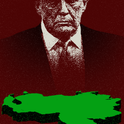One of the difficulties in writing about Donald Trump is capturing the severity of his actions. Since 2015, when he descended the stairs of Trump Tower and announced his candidacy by calling Mexicans drugs dealers and rapists, the former president has helped to desensitise the western world to authoritarianism. Trump has faced more impeachments than any other former presidents (two) and was the first modern US leader not to release his tax statements. Yesterday he added yet another superlative to his record, being not only the first former US president to receive a criminal indictment, but to receive three—and this time for treason.
The charges filed by special counsel Jack Smith in Washington’s Federal District Court on 1st August make the severity of Trump’s actions plain. They accuse Trump of committing three conspiracies related to his efforts to overturn the 2020 presidential election: the first, to defraud the United States; the second, to obstruct the Electoral College vote; and the third, to deprive the people of their civil right to have their votes counted. He is also accused of a fourth count of obstructing an official proceeding.
For the past several months, right-wing news outlets have downplayed Trump’s legal troubles. The first indictment, in March, relates to a theory—one that has not yet been legally tested—that attempts to tie so-called “hush money” payments made to former adult film actress Stormy Daniels with alleged campaign finance violations. The right-wing media portrayed the indictment as a witch hunt. The details of that indictment itself were hard to follow for anybody unable (or unwilling) to read carefully through reliable news reports. The second indictment, in June, for stealing confidential documents after Trump left office has been twisted by the right-wing media into dangerous whataboutisms. In the mind of many of Trump’s supporters, stealing and refusing to give back top classified documents is as bad as Biden accidentally finding and immediately returning documents he found in his garage.
This indictment is different. Everyone with access to a live news feed was able to stand back and watch in horror as an angry mob broke into the US Capitol on 6th January 2021 and attempted to overthrow the previous November’s election result. There is clear footage of Trump egging on the crowd from behind a podium on the ellipse in front of the White House, just as there is clear documentation of the crowd chanting that they wanted to assassinate any US lawmakers who stood in their way.
What sets this indictment apart from any event in American history is not only that the country now has a viable candidate who has attempted to usurp the peaceful transition of power, but that so many Americans don’t seem to care that he did. A poll released in September 2022 revealed that nearly 42 per cent of Republican voters said that “strong, unelected leaders are better than elected weak ones”. And while he remains the most likely Republican candidate for the 2024 election, current poll numbers show him in a dead heat with Biden.
For the past eight years, political observers have speculated about how much Trump has managed to erode the guardrails of American democracy. So far, those guardrails have held. The Donald is no longer in office; the country is attempting to fall back into a rhythm of normality. If Trump wins re-election next November, it won’t be a result of any institutional failure or any weakness in the constitution that Americans are so proud of. It will be because enough Americans have stopped caring about democracy altogether.












